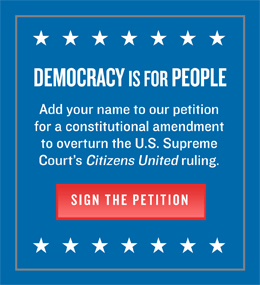



Last year on the Wyatt Wright Show we covered the U.S. Supreme Court’s ruling in Citizens United v. FEC which opened the floodgates allowing unlimited amounts of money to flow in support of a candidate for office. The ruling struck down a federal law limiting amounts and requiring disclosure of who was behind the money.

But the ruling basically said the corporations (and the Super PACS) have the same “Free Speech” rights that humans have and that spending their money is protected speech. While the ruling does not allow these Super PACS to give unlimited money directly to a candidate, they are free to run their own advertisements in support of their candidate, or against the opposing candidate. The last vestige of responsibility following the ruling was the continued prohibition on “coordination of campaigns.” That is, while the Super PACS are free to spend ten gazillion dollars on their man or woman, they can’t call up the candidate and share ideas or develop a coordinated strategy.
Some of you may be saying, “yeah right, I’m sure they don’t talk.” Perhaps they do, but what may have been done in secret before is now being pushed into the open to test the limits of what is legal. Ok, so talking on the phone and sharing notes is clearly illegal. But what would you say if the candidate and the Super PAC endorsing him or her both hired the SAME market research firm to give target audience advice? Does this cross the line? What if the political consulting firms hired by the PAC and the candidate had different names, but shared the same office? Not enough for you? How about if the founder of the candidate’s consulting firm is married to the chief executive of the market research firm working for both the candidate and the PAC? There is no question that this tramples the intention of the law, but does it violate it?
This is the situation as it currently exists in the Mitt Romney campaign. Would it make you feel better if I told you that the market research firm has promised that it isn’t sharing ideas with its two clients and that its employees have been instructed to pretend there is a wall between them?
Yet, even if it Romney’s situation is innocent and the firms are able to keep things separate, by allowing this to occur aren’t we setting the stage for corruption in future cases? Further, even if innocent, isn’t each client entitled to get the best work from its market research company? How, then, can the market research company do anything other than give the same reports and the same advice to clients sharing an identical agenda—to elect a certain candidate?
For more check out the New York Times article found here.